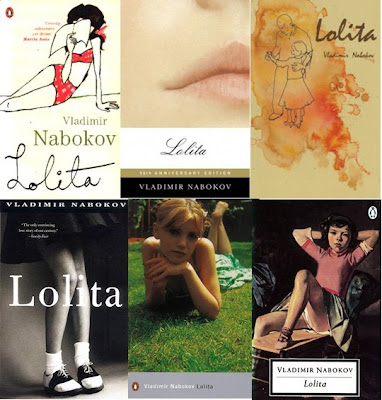Hugo Wilcken Interview

At the end of last month John Self got the ball rolling in a concerted effort to shine light on a novel neglected on its release but well worth your attention. His review is here, mine here and my review of Wilcken's first novel can be found here. Amidst all this attention Hugo very kindly agreed to answer a few questions.
How did you feel when you found out that your novel Colony was the subject of some concerted blog scrutiny?
It's been a fantastic opportunity to get a second hearing for my book, and I'm really grateful to everyone who has shown interest. Clearly, as newspapers continue to struggle and cut back on reviewing space, literary websites and blogs are going to be increasingly important for readers, writers and publishers.
I want to ask you about The Execution first. Where did that idea come from? I tend to work by collage, putting two ideas together and seeing what meanings are produced when they rub up against each other. With The Execution, I was initially inspired by the Claude Chabrol film La Femme Infidèle, and thought I could write a good noir-ish novel about adultery and murder. At the same time I wanted something more than that. I’d written the first few pages of a short story about a condemned man writing to a human rights campaigner; the man is innocent, but also wants to die. I thought I’d somehow combine the two ideas. Lurking in the background of the novel is also Camus’s L’Etranger.
I tend to work by collage, putting two ideas together and seeing what meanings are produced when they rub up against each other. With The Execution, I was initially inspired by the Claude Chabrol film La Femme Infidèle, and thought I could write a good noir-ish novel about adultery and murder. At the same time I wanted something more than that. I’d written the first few pages of a short story about a condemned man writing to a human rights campaigner; the man is innocent, but also wants to die. I thought I’d somehow combine the two ideas. Lurking in the background of the novel is also Camus’s L’Etranger.
I've noticed a lot of novels featuring men around thirty at a crossroads and wondered whether their genesis and creation might come from something similar to what I felt at that age. Was it like that for you?
My protagonist in The Execution turns thirty in the last chapter, I think. The idea behind that was a marker of time finally going forward again, following a period when it had somehow become suspended in a nightmare. It’s just occurred to me that Sabir in Colony is also thirty – I guess it’s a good, balanced age for an ‘everyman’ protagonist: still young, but old enough to have had a fair amount of experience as well.
There is a feeling for the main character of being trapped in his life which spurs some of his actions and you later developed the theme of escape in Colony - Was this a conscious development?
What connects the two novels for me, thematically, is the idea of pushing lives to the point where existential questions must be faced. Stylistically, the novels both use genre models that they ultimately break free from. There are similarities of tone in the two novels, but I think Colony is more ambitious and covers more philosophical ground.
I definitely agree that Colony is a far more ambitious book. You may have noticed that those of us that have reviewed it have found the works of different writers reflected in it. What writers would you say have particularly influenced or inspired you?
Looking to other writers for inspiration can be a pernicious business. I was captivated by Beckett in my mid-twenties, then wasted a couple of years writing bad Beckett pastiche. For Colony, I got the most out of reading the memoirs of people who had been to the penal colony – convicts, guards, doctors, etc. The prose was often workaday but the atmosphere was there. But I was obviously following a tradition of novels about moral breakdown in the tropics – Heart Of Darkness of course and plenty of Graham Greene. There’s also the shadow of Rimbaud over the book, but more for his life story than for his poetry
I couldn't help but recall Apocalypse Now visually when reading the book. Did you have any visual references when writing it and what kind of research did you do? Well, Apocalypse Now is a favourite film of mine, and I think there’s something of that (and the source novel Heart Of Darkness) in Colony. You sense that it wouldn’t take too much for my Commandant to become a Kurtz-like figure. I love movies but my references tended to be more literary than visual. Graham Greene’s Journey Without Maps about exploring the Liberian jungles in the 1930s was one I remember taking ideas from, when it came to building atmosphere.
Well, Apocalypse Now is a favourite film of mine, and I think there’s something of that (and the source novel Heart Of Darkness) in Colony. You sense that it wouldn’t take too much for my Commandant to become a Kurtz-like figure. I love movies but my references tended to be more literary than visual. Graham Greene’s Journey Without Maps about exploring the Liberian jungles in the 1930s was one I remember taking ideas from, when it came to building atmosphere.
I researched the novel basically by reading histories and memoirs of the period at the Bibliothèque Nationale in Paris. From the beginning I’d toyed with going out to French Guiana. But for a long time I wasn’t sure I’d be able to write the novel, and I didn’t want to waste money going out there if that were the case. Then when I finally realised I’d be able to write it, there was no longer any point in going out there. It was all in my head already, and I didn’t want the reality to spoil that! Historical fiction is not ultimately about history, it’s about inventing parallel or alternative worlds to our own. Colony hews fairly closely to the historical reality of the penal colony, but when reality got in the way of the story, I jettisoned the reality and not the story.
Were you ever tempted to use your native Australia as the setting?
I did think about it. But that would have placed the action in the early nineteenth century. I wanted something more modern, because in fact the idea of modernism is important to the novel. Years ago, before The Execution, I actually wrote 70 or 80 pages of a novel set in an imaginary penal colony, but ultimately it didn’t work out.
There is an ambiguity in the two sections of the book which leaves lots of room for the reader. Why did you want that?
Those ambiguities are at the heart of what I was trying to do. The two sections shadow and mirror each other in distorted form; they are internally consistent, and yet not quite consistent when set side by side. The novel travels along a narrative faultline, resisting a totally logical, realist explanation, forcing the reader to look elsewhere for resolution.
As well as writing those two novels you also wrote about David Bowie’s album Low for the 33 1/3 series. How did that come about and what was it about that album that made you want to write about it? I wrote the Bowie book in the middle of writing Colony. I was beginning to wonder whether I’d ever be done with Colony and wanted a small project to prove to myself that I could actually finish something. I pitched the editor of the 33 1/3 series out of the blue, and he commissioned the book. Low was part of my teenage artistic awakening. Its atmosphere of modernist alienation, its expressionism, its blend of genres, its schizophrenic quality – these were all things I thought I could write about in an interesting way.
I wrote the Bowie book in the middle of writing Colony. I was beginning to wonder whether I’d ever be done with Colony and wanted a small project to prove to myself that I could actually finish something. I pitched the editor of the 33 1/3 series out of the blue, and he commissioned the book. Low was part of my teenage artistic awakening. Its atmosphere of modernist alienation, its expressionism, its blend of genres, its schizophrenic quality – these were all things I thought I could write about in an interesting way.
Are you working on anything at the moment?
Yes, I’m writing a novel set in New York in the 1940s.
Would you like to recommend a neglected book to the readers of this blog?
I recently read and was very impressed with Hangover Square by Patrick Hamilton.
Read more...












